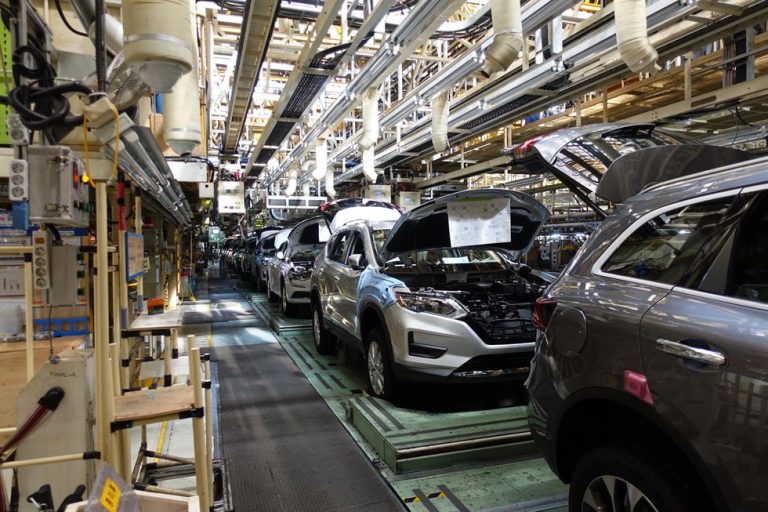Nigeria’s automotive business is closely depending on importing new and used vehicles, together with automobile spare elements, as a consequence of its underdeveloped state.
As an import-dependent sector, financial headwinds, together with volatility of trade charges of naira to greenback, trade charge of cargo clearing on the port, and surging inflation, pose critical challenges and restrict the expansion of Nigeria’s automotive industry.
Subsequently, to allow business gamers to arrange forward to surmount these challenges and prepare to harness the alternatives the business will current within the New Yr, we take a look at the traits that can outline the business in 2024.
They embrace a surge in demand for sedans, an increase in demand for electrical autos, FX charges and inflation, and pricing.
Demand for fuel-efficient vehicles
Gasoline effectivity is a crucial factor each Nigerian automobile purchaser now appears to be like out for, particularly on condition that petrol goes out of the attain of the poor.
The removing of the petrol subsidy by the Federal Authorities in 2023, which led to a rise in pump worth from N195/$ to over N637/$ has introduced cautiousness within the minds of Nigerians, particularly as regards the gasoline consumption of the automobile to purchase.
Primarily based on this, gasoline effectivity and the economical nature of a automobile have turn into figuring out elements whereas shopping for, and this can proceed even in 2024. This makes many Nigerians pay critical consideration to the kind of automobile they purchase.
Rise in demand for sedans
The nation’s used automobile market will seemingly see a surge within the demand for used sedan vehicles in 2024.
Sedans are extra economical and fuel-efficient than sport utility autos (SUVs) and multi-purpose autos (MPVs).
Giving an outlook for Nigeria’s automobile market in 2024, Maxim Makarchuk, COO of Cars45, stated extra Nigerians will want sedan autos over SUVs and MPVs as a result of sedans are extra inexpensive in pricing.
The rise in petrol pump costs in Nigeria is a key issue influencing the upper demand for used sedans, based on a report by Mordor Intelligence.
Rise in demand for EVs
One other development that can turn into a driving pressure in Nigeria’s auto business in 2024 is the rise within the demand for electrical autos (EVs).
Globally, there is a rise within the charge at which EVs are accepted and used, such that nations are actually paying extra consideration to constructing infrastructure, together with public charging techniques, to allow the usage of EVs.
Nigeria isn’t but in that class, however with the worldwide shift in the direction of sustainability, Nigeria isn’t resistant to the rising curiosity in electrical autos.
The Director of the Nationwide Automotive Design and Improvement Council (NADDC) stated in a latest publication that by 2025, 30 % of passenger vehicles pushed in Nigeria can be electric-powered.
Which means that because the 12 months progresses, extra folks will shift from utilizing petrol-powered engine vehicles to electrical ones.
FX charges
The trade of naira towards the greenback and additional devaluation of Nigeria’s naira will proceed to find out the prices of bringing new and used vehicles into the Nigerian market in 2024.
Within the final 5 years, costs of vehicles in Nigeria, particularly brand-new vehicles, have skyrocketed as a result of naira devaluation and excessive trade charges.
As well as, the fixed adjustment of the trade charge for clearing imported vehicles and spare elements on the nation’s seaports by the Nigeria Customs Service (NCS) is leading to an increase within the costs of brand-new and used vehicles in Nigeria.
Citing an instance, Aissatou Diouf, basic supervisor of Suzuki by CFAO, stated {that a} brand-new automobile such because the Suzuki Grand Vitara, which was offered at N9.9 million in 2019 when the trade charge was N362.60/$ and N24 million in 2023 when the trade charge closed the 12 months at N1,099.05/$ within the official market.
Which means that the naira was additional devalued in comparison with 5 years earlier, which is 2019, and it considerably impacted the price of importing vehicles.
Inflation and pricing
In 2023, when the costs of brand-new vehicles and tokunbo autos ballooned as a consequence of surging inflation that hit 28.20 % in November 2023, based on the Nationwide Bureau of Statistics (NBS), extra Nigerians began holding on to their older autos longer than earlier than.
The excessive price of shopping for new or used autos in Nigeria leaves extra folks with no selection aside from to maintain those they’ve longer than typical.
That is such that people, households and corporations that used to both improve or change their vehicles each 4 years now resolve to maintain their older vehicles for so long as they will, whereas some preserve theirs for over 9 years as a result of great amount wanted to purchase vehicles in Nigeria as we speak.
Based on many Nigerians, this issue will proceed even in 2024 as inflation and costs proceed to surge. Subsequently, many will proceed to take a position their restricted assets into fundamental wants slightly than purchase new vehicles.


